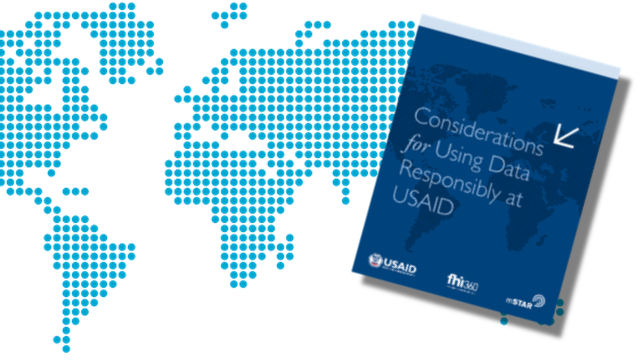
Responsible data practices in international development programming are a set of guidelines and best practices that aim to ensure that data is collected, stored, and used in an ethical, secure, and transparent manner.
These practices are particularly important in the context of international development, where data is often collected from vulnerable communities, and there is a need to protect the privacy and security of individuals and communities.
The following are some key elements of responsible data practices in international development programming:
- Privacy: All data collected must be kept confidential and secure, and individuals must be informed about how their data will be used and who will have access to it. This includes taking steps to prevent unauthorized access, such as using secure storage systems and implementing strong data security protocols.
- Informed consent: Individuals must be fully informed about the purpose of data collection, how their data will be used, and who will have access to it. They must also be given the option to opt-in or opt-out of data collection.
- Data quality: Data collected must be accurate, complete, and relevant. This requires using appropriate methods of data collection, such as well-designed surveys, and ensuring that the data is collected in a consistent and reliable manner.
- Transparency: The data collection process, including how data will be used, who will have access to it, and how it will be secured, must be fully transparent and accessible to individuals and communities.
- Capacity building: Local communities and individuals must be provided with the skills and knowledge necessary to understand and manage their data, including understanding the potential risks and benefits of data collection and use.
- Data sharing: Data collected must be shared in a responsible manner, taking into account the potential impact on individuals and communities. This may involve implementing strict access controls, such as requiring user authentication, or anonymizing data to protect privacy.
- Data sustainability: The long-term storage, maintenance, and accessibility of data must be ensured, taking into account the need to preserve data for future use, including for monitoring and evaluation purposes.
By following responsible data practices, international development organizations can ensure that the data they collect is used in a manner that is ethical, secure, and transparent, and that the rights and interests of individuals and communities are protected.











